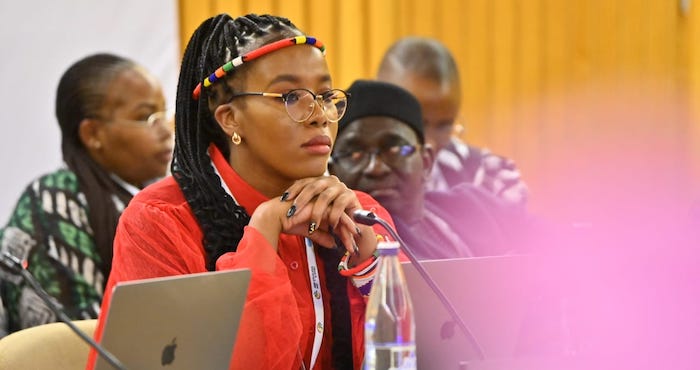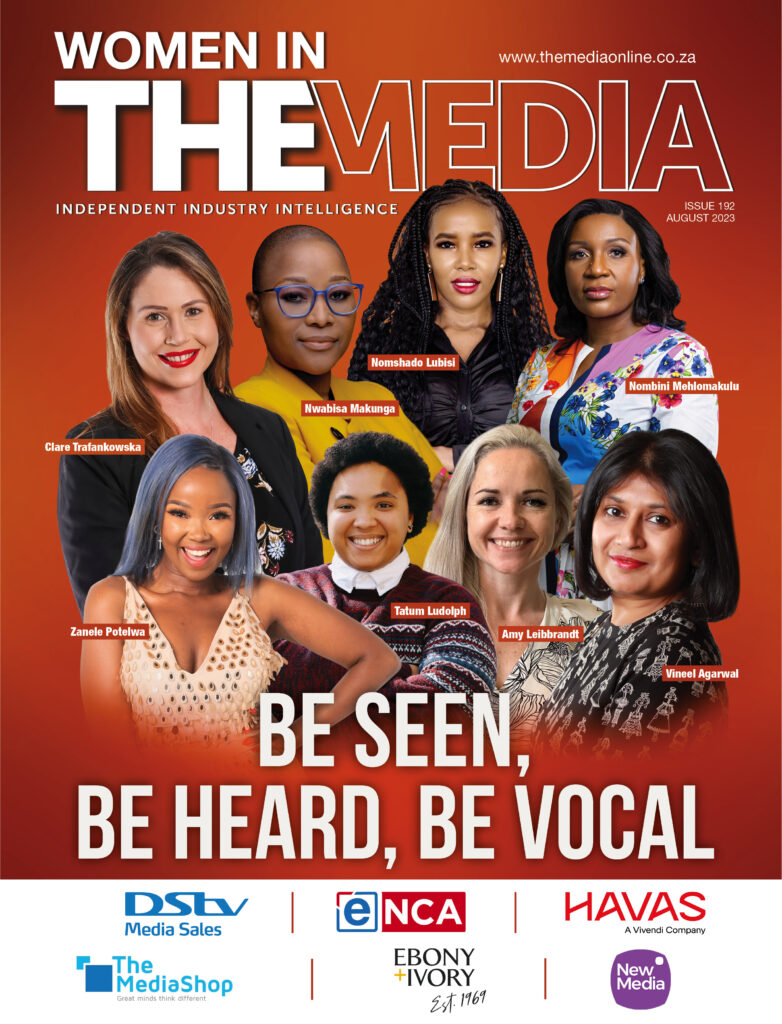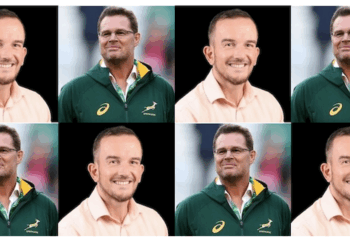As I reflect on my journey of growth and learning, one theme that stands out prominently is the significance of building resilience to disinformation. The field of mass media and communication is constantly evolving, and it has an immense power to shape public opinion, influence behaviour, and drive social change.
In today’s interconnected world, disinformation has become a pervasive threat to truth, critical thinking, and democracy itself. Misinformation spreads like wildfire through social media and other digital channels, making it challenging to distinguish fact from fiction.
The consequences of falling victim to disinformation can be devastating, affecting not just individuals but entire communities and societies. By working in this field, I have been able to contribute and be part of the process of informing, educating, and inspiring audiences, making a tangible impact on society.
Through my experiences as a communicator, I’ve come to understand the urgency of combating disinformation and promoting media literacy. The ability to discern credible information is crucial in making informed decisions, participating in public discourse, and safeguarding the values we hold dear.
This journey has taught me that building resilience to disinformation is not just a personal responsibility; it is a collective obligation that requires collaboration, education, and a united front against falsehoods.
Connecting stages
As a communications professional, I’ve been fortunate to have opportunities to share my voice on local, continental, and global stages. Each platform provided a unique experience, contributing to my growth as a communicator and an individual.
Locally, I have engaged with communities, organisations, and institutions, advocating for media literacy and raising awareness about the dangers of disinformation. On the continental stage, I have participated in conferences and workshops in Malawi, Ethiopia, Zambia, Namibia to name a few.
The experience of sharing insights and strategies to combat disinformation across borders was enlightening. It reminded me of the common challenges we face and the power of solidarity in our fight against misinformation.
Finally, the opportunity to engage on the global stage exposed me to diverse perspectives and experiences from communicators around the world. We discovered that disinformation knows no boundaries and affects societies regardless of their location or development status. Together, we explored innovative approaches to counter false narratives and strengthen media literacy worldwide.
Recently I was thrilled to be one of the fortunate 20 African communications professionals selected by the Romanian Agency for International Development and the Ministry of Foreign Affairs of Romania to participate in an intensive training programme on ‘Building resilience to disinformation in a changing communication environment’.
What made this experience truly extraordinary was the emphasis on collaboration and cultural exchange. Throughout the programme, I was constantly reminded of the power that lies in learning from one another, breaking down barriers, and working together instead of in silos.
The world is incredibly diverse, and it was through our differences that we were able to create something truly remarkable.
Imagine being in a room with professionals from various African countries, each bringing their unique perspectives, experiences, and solutions to the table. This melting pot of ideas became the key to unlocking innovative ways to combat disinformation and build resilient communication strategies.
By embracing our differences, we challenged the status quo and reshaped the narrative together.
As we learned and grew together, our experiences on this journey underscored the importance of building resilience to disinformation not only in Africa but on a global scale. It was a testament to the importance of international cooperation in addressing global challenges like disinformation.
Bridging gaps and empowering communities
In the midst of these remarkable experiences, I find myself fuelled by an unwavering determination to close the gap in the digital divide. As I witness the transformative power of technology and its potential to combat disinformation, I am acutely aware of the pressing need to ensure that all Africans have equal access to the digital world.
This digital divide remains a significant challenge that hampers our collective efforts to build resilience to disinformation and create a more informed and empowered society.
Across Africa, the availability and accessibility of digital technology and the internet vary greatly. While some urban centres and developed regions enjoy robust connectivity and access to advanced technology, vast rural areas and marginalised communities still lack basic infrastructure.
This glaring disparity in digital access leaves millions of Africans disconnected from the wealth of knowledge and opportunities that the digital world offers.
While some regions boast thriving tech hubs and widespread internet connectivity, others struggle with limited infrastructure and access. It is our collective duty to ensure that no African is left behind in the digital revolution.
Investing in digital infrastructure
To combat this gap, we must prioritise initiatives that expand access to affordable and reliable internet services. This includes investing in digital infrastructure to reach remote and underserved areas, where connectivity is often sparse or absent. By extending the reach of digital connectivity, we open doors to vast knowledge and opportunities for millions of Africans.
Empowering communities with digital literacy is equally crucial in our journey towards resilience to disinformation. Many African societies have rich oral traditions, but the digital age demands new skills. Educating our communities on digital navigation, media literacy, and critical thinking ensures that they can discern fact from fiction in an ever-expanding online world it ensures our voices are still heard.
Moreover, empowering African women is central to our efforts. Women are the backbone of our communities, and their role in building resilience to disinformation cannot be overstated. By providing women with equal opportunities in the tech and communication fields, we tap into a wealth of untapped potential. Women communicators play a vital role in shaping narratives and fostering trust within communities.
Our continent is vibrant and diverse, with thousands of languages, cultures, and traditions. Inclusive approaches are key to addressing the digital gap effectively. By creating content and resources in local languages and reflecting the cultural nuances of our various communities, we ensure that our efforts are relatable and impactful.
Empowering women to lead
While on this journey, I was particularly heartened by the presence of women in leadership positions within our group. As a woman in the field of communication, witnessing their impactful roles inspired me to advocate even more passionately for gender equality and women’s empowerment.
Women bring unique perspectives, strengths, and ideas to the table, and it’s vital to ensure their voices are amplified and heard. By promoting gender diversity and inclusivity, we can foster more comprehensive approaches to combating disinformation and achieving lasting change in our societies.
Lessons learned and advice to share
Through the experiences shared during this journey, I’ve learned several valuable lessons that I would like to impart to others:
- Embrace collaboration: Building resilience to disinformation requires collective efforts. Collaborate with individuals, organisations, and governments to create a united front against false narratives.
- Champion media literacy: Promote media literacy among your community and beyond. Encourage critical thinking, fact-checking, and responsible information-sharing practices.
- Bridge the digital gap: Focus on empowering communities with access to reliable information and technology. Addressing the digital divide is essential in our fight against disinformation.
- Celebrate diversity: Embrace the diversity within your community and recognise the strength that lies in different perspectives and experiences.
- Empower women: Support and empower women to take leadership roles in communication and other fields. Gender diversity fosters creativity and innovation in combating disinformation.
- Stay vigilant: Disinformation is constantly evolving, so stay informed about emerging trends and tactics used to spread false information. Adapt your strategies accordingly.
- Lead by example: Be a responsible and ethical communicator. Verify information before sharing it, and encourage others to do the same.
In conclusion, my journey of building resilience to disinformation has been both enlightening and empowering. It’s clear that the fight against disinformation is ongoing, and it requires commitment, collaboration, and education from all of us. By embracing our diversity, bridging the digital gap, and empowering women, we can create a safer and more informed world for everyone.
I am excited to channel the insights and experiences gained from the into my postgraduate dissertation. Through rigorous research, data analysis, and collaboration with experts in the field, my dissertation will delve into the intricacies of disinformation, seeking to uncover innovative strategies to combat its spread. I aspire to contribute tangible solutions to the pressing challenge of disinformation in Africa.
Nomshado Lubisi is communications manager for Media Monitoring Africa. She has a versatile skill set encompassing strategic communications, internet governance, digital rights, misinformation and disinformation, youth development and media research. Lubisi’s passion lies in creating a responsible and informed digital landscape and breaking down barriers and create a more inclusive media environment.
- Twitter: @NomshadoL
- LinkedIN: Nomshado Lubisi Nkosinkulu
- Instagram: @nomshado_nkosinkulu















